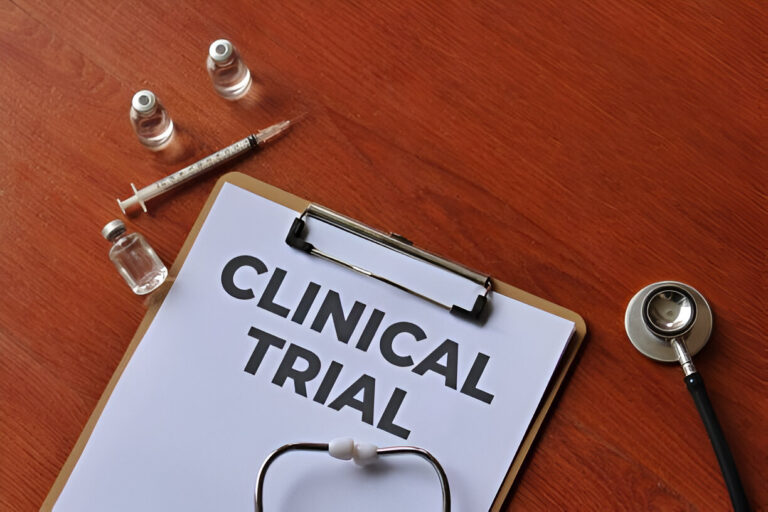Key Takeaways:
- Understand the purpose and structure of each phase in clinical trials.
- Explore the rigorous processes involved in testing new treatments.
- Learn how trials contribute to medical advancements and patient safety.
- Discover the role of patient participation in successful trial outcomes.
Introduction to Clinical Trials
Clinical trials are pivotal in advancing medical research, forming the backbone of developing, assessing, and approving new treatments and therapies. These trials are meticulously divided into distinct phases, each designed with specific objectives and methodologies to rigorously test potential new therapies’ safety, effectiveness, and ideal dosages. By participating in such trials, individuals can access cutting-edge treatments while contributing invaluable data that aids in understanding various medical conditions. For instance, clinical trials for Crohns Disease exemplify how targeted research can lead to innovative therapies that significantly improve patients’ quality of life. The structured approach of clinical trials ensures comprehensive testing, addressing questions about treatment efficacy and ultimately enhancing healthcare outcomes worldwide.
Phase 1: Safety and Dosage
Phase 1 trials represent the first step in testing a new treatment in humans, primarily focusing on determining its safety profile and establishing the most suitable dosage range. Involving a small cohort of healthy volunteers or patients, this phase is critical in identifying any serious side effects and understanding how the treatment is metabolized and excreted by the body. Despite involving a limited number of participants, the data gathered in this initial phase is crucial in informing subsequent phases. According to FDA guidelines, Phase 1 trials seek to determine a safe dosage range and establish the side effects that occur as the dosage increases. This foundational phase lays the groundwork for the more extensive testing in the latter phases of clinical trials.
Phase 2: Efficacy and Side Effects
Building on the safety data from Phase 1, Phase 2 trials delve deeper into determining the treatment’s efficacy while continuing to monitor its safety. This phase typically includes a larger group of participants, specifically those diagnosed with the condition the treatment aims to address. The primary goal is to ascertain the therapeutic effects and any adverse reactions to the treatment at the established dosage. Researchers focus on optimizing the treatment regimen and sometimes employ control groups receiving a placebo to provide a comparison point. Data from Phase 2 trials help refine the treatment protocol and lead to adjustments in dosage or administration methods if necessary.
Phase 3: Confirmation and Monitoring
Phase 3 trials are a critical milestone in drug development, aiming to confirm a treatment’s efficacy on a much larger scale. This phase involves thousands of participants across various geographic locations, providing a thorough examination of the treatment’s benefits and potential risks. The extensive participant pool helps ensure the treatment’s effectiveness across diverse populations and settings. These trials often need years to complete and generate comprehensive data that can lead to regulatory approval. The integrity of data collected during Phase 3 underscores the treatment’s potential to become a standard part of medical care. Successful Phase 3 trials demonstrate the treatment’s therapeutic value, reinforcing safety and effectiveness findings reported in earlier phases. Here, the role of technology, including electronic data capture systems and remote patient monitoring, enhances the efficiency and accuracy of data collection.
Role of Technology in Phase 3
Technological advances are vital in enhancing the quality and efficiency of Phase 3 trials. Electronic data capture systems ensure accurate and timely data entry, minimizing errors associated with manual data collection. Additionally, remote monitoring technologies allow for real-time data collection and patient tracking, making participating easier for patients from diverse locations. These tools significantly improve participant engagement and compliance while facilitating extensive and reliable data collection essential for the trial’s success.
Phase 4: Post-Marketing Surveillance
Phase 4 trials take place post-approval and release onto the market, focusing on the long-term safety and effectiveness of the treatment in broader, real-world populations. Post-marketing surveillance studies involve monitoring participants for extended periods to scrutinize the treatment’s effects and safety over time. This phase helps detect rare or long-term side effects and assess the treatment’s impact on quality of life. Insights gained from Phase 4 research can lead to modifications in treatment practices, such as new indications, dosing guideline adjustments, and safety information updates. These ongoing evaluations ensure the treatment remains safe and effective for all patients and clinical settings.
The Importance of Participant Involvement
The involvement of participants is crucial in the success and advancement of clinical trials. Participants contribute significantly by helping researchers understand the benefits and risks of treatments and various responses across different demographics. Their participation enables the collection of diverse data, which is critical in developing effective and safe treatments for a wide array of patients. Engaging with well-informed healthcare professionals and understanding trial requirements are crucial steps for participants to make informed decisions about their involvement in clinical research.
Addressing Ethical Considerations
Ethical considerations form the core of clinical trial processes, with participant well-being at the forefront of every research endeavor. Emphasizing informed consent, trials ensure participants understand the risks and benefits of their involvement before they agree to participate. Moreover, maintaining strict confidentiality of participant data is crucial in upholding ethical standards.
Conclusion
The structured, multi-phase approach to clinical trials is vital in developing new treatments, ensuring they are safe, effective, and beneficial to a broad patient population. Each phase, from initial safety testing to post-marketing surveillance, builds upon the previous one, strengthening the evidence base required for medical advancements. The role of participants cannot be overstated—they are crucial in pursuing new therapies that can offer hope and health to millions. As scientific understanding and technology evolve, clinical trials will remain indispensable in the relentless quest for better human health. By participating in and supporting this structured approach, we advance medical science, bringing transformative treatments from research labs into the lives of those who need them most.



